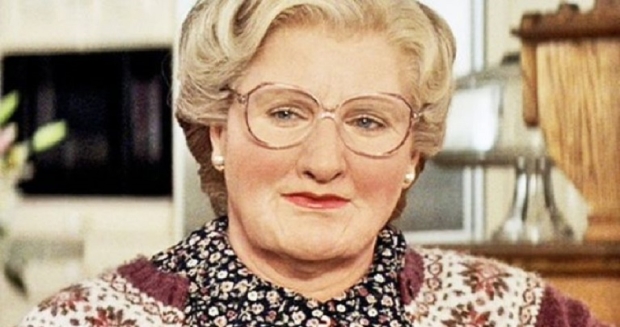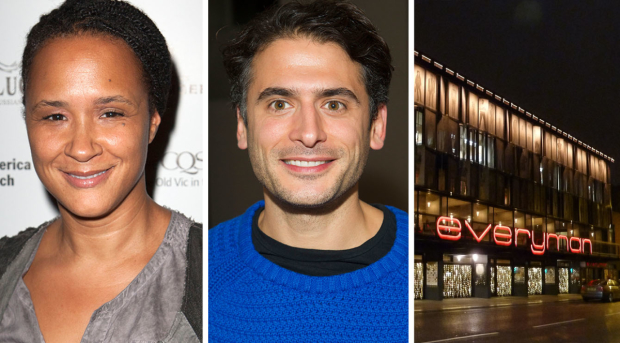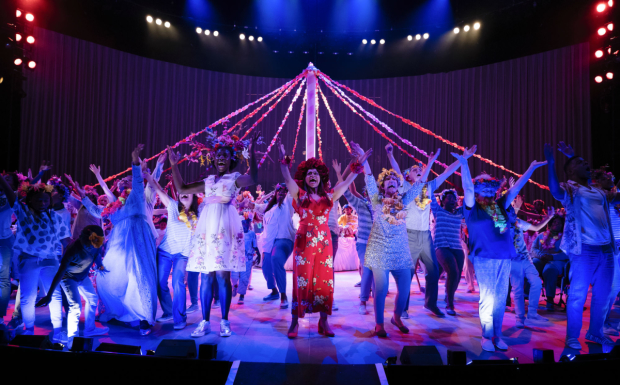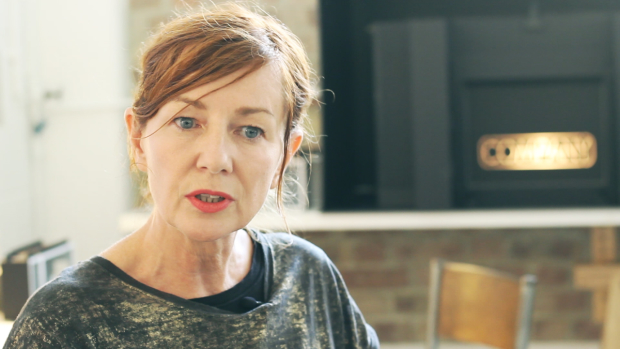Review: Love's Labour's Lost (Sam Wanamaker Playhouse)
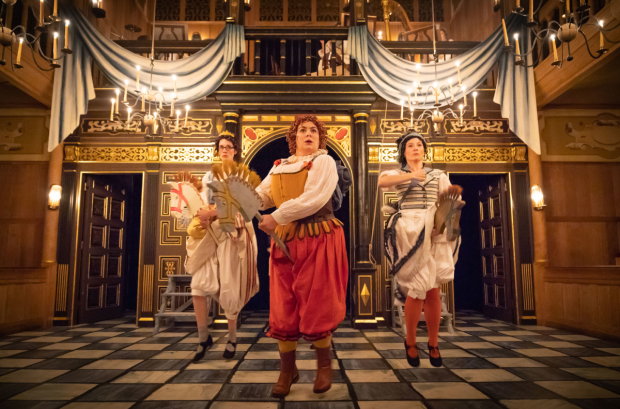
© Marc Brenner
It's not Shakespeare's best, Love's Labour's Lost. The critic William Hazlitt once wrote it off altogether: "If we were to part with any of the author's comedies, it would be this." Its structure's wonky, its wordplay's overcooked, but there's no surer way to render Shakespeare unfunny than by straining for gags. In playing LLL for LOLs, Nick Bagnall's sketch-comic staging gives up on truth to go way over the top. Laughs laboured, lost.
Bagnall frames the play as a wistful look back at a carefree summer. Kirsty Woodward's mournful Princess of France sits in the shadows of the Sam Wanamaker Playhouse, her father dead, and pulls the play's action out of a toybox. It's as if she's replaying happier times in her head: a gap year adventure with her two BFFs.
It makes sense. Love's Labour's Lost is essentially a student comedy – Shakespeare's equivalent of The Inbetweeners Movie. Three young bucks foreswear all female company for a summer of study, only for three smoking hot babes to trot into town. Cue bawdy romcom: boys getting flirting completely wrong; girls brushing them off with witty aplomb.
It's a battle of the sexes and, if Katie Sykes' design instils a childish spin – Nutcracker soldiers and storybook kings – Bagnall plonks its main plot back into the playground. Boys on one side, girls on the other. When the three women rock up in Navarre by hobby horse, the two camps regard each other with frosty suspicion. The Princess' posse stand, arms folded, all sass. The Prince's lads play it cooler than cool.
Bagnall's point is that we play up to gender, holding ourselves as we think the other sex wants. Having hitched their skirts up for the ride, openly wiping their pits and bits en route, the women suddenly come over all coy. On a girls-only hunt, Jade Williams' Rosaline goes full Rambo, only to hide behind her fan the moment Dharmesh Patel's Berowne swings by.
The boys are no better. Lads, lads, lads together, they are, in private, gushingly lovesick, swapping bravado for heart-shaped balloons and valentine's poems. Having busted each other for feeling the feelings, they regroup as wingmen and spur each other on – "for women's sake, by whom we men are men". Their bearded Cossack disguises become ultra masculine facades and the trio treat flirtation as if going to war.
In charging at gender and flattening the language of love, however, Bagnall leaves the play's subplots adrift. Jos Vantyler's foppish Don Armado – bizarrely – incorporates his servant into a split personality, as if the Spanish sexpot has a little Lancastrian alter ego or imaginary friend. Amusing only because it's so completely nuts, it might – at a push – suggest the sweet boys men contain, but it reads like a fudged fix to a seven-strong cast. Paul Stocker and Tom Kanji play the pedantic, Latin-spouting scholars like The Muppet Show's old grumps, Statler and Waldorf, but there's little sense of two lives lost to books.
It's symptomatic of a staging that sends everything up – all topspin, no truth – so the eventual lurch into real love simply can't cut through. "A jest's prosperity lies in the ear of him that hears it," says Rosaline, "never in the tongue of him that makes it." Bagnall should take the advice to heart.




